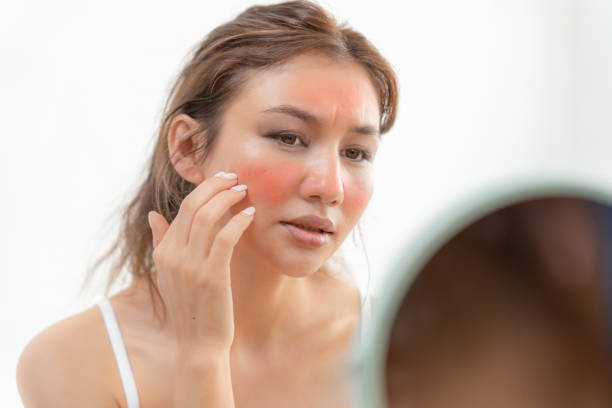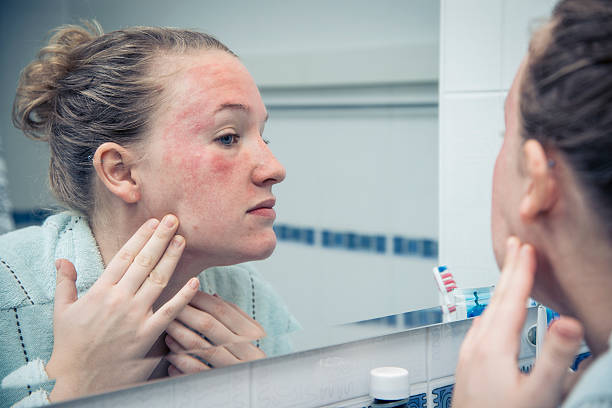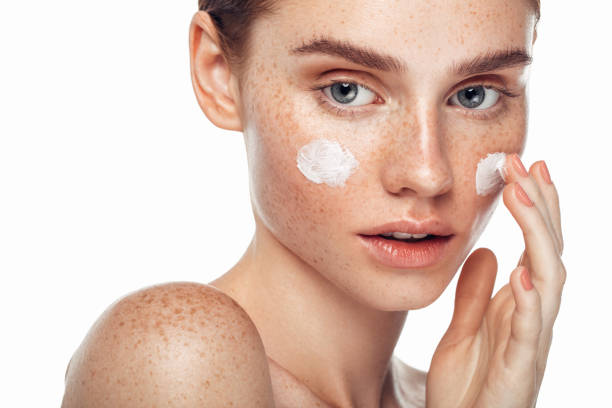When it comes to managing sensitive skin, the journey can often be fraught with trial and error. One pivotal aspect of this endeavor is recognizing what treatments and ingredients may do more harm than good. This article aims to provide clarity by outlining treatments that are not beneficial and may even exacerbate the condition of sensitive skin. By understanding the misconceptions, harmful ingredients, and improper practices, individuals can make better choices to protect and nourish their delicate skin.
Common Misconceptions in Sensitive Skin Treatment

There are several misconceptions surrounding the treatment of sensitive skin that can lead to ineffective or even harmful skincare practices. Here are some common misconceptions:
- Stronger Products = Better Results: Many people believe that using stronger or more potent skincare products will yield better results. However, for sensitive skin, harsh ingredients can cause irritation and exacerbate sensitivity. It’s essential to choose gentle, fragrance-free products specifically formulated for sensitive skin.
- All-Natural Products are Safe for Sensitive Skin: While natural ingredients can be beneficial for sensitive skin, not all natural products are suitable. Some natural ingredients, such as essential oils and botanical extracts, can be irritating or allergenic for sensitive individuals. It’s important to patch test new products and avoid known irritants.
- Exfoliation is Necessary for Healthy Skin: Exfoliation is a common skincare practice to remove dead skin cells and promote cell turnover. However, for sensitive skin, abrasive exfoliants can cause redness, inflammation, and damage to the skin barrier. Instead, opt for gentle exfoliation methods, such as enzyme exfoliants or mild chemical exfoliants.
- More Products = Better Results: Some people believe that using multiple skincare products will provide better results for their sensitive skin. However, using too many products can overwhelm the skin and increase the risk of irritation and allergic reactions. It’s best to keep your skincare routine simple and focus on using a few gentle, effective products.
- Sunscreen is Not Necessary for Sensitive Skin: Sunscreen is essential for everyone, including those with sensitive skin. UV exposure can exacerbate sensitivity, trigger inflammation, and lead to premature aging. Choose a broad-spectrum sunscreen with SPF 30 or higher and apply it daily, even on cloudy days.
Ingredients to Avoid for Sensitive Skin

For those with sensitive skin, the ingredient list on skincare products can be a minefield. Harmful components can lead to increased discomfort and an aggravation of symptoms. Identifying and avoiding these ingredients is critical for maintaining the health of sensitive skin.
Harsh Exfoliants and Scrubs
While exfoliation can be beneficial for many skin types, those with sensitive skin should steer clear of harsh scrubs and exfoliants. Physical scrubs can create microtears in the skin, leading to inflammation and irritation. Instead, opt for gentle, chemical exfoliants in low concentrations, which can alleviate dead skin cells without physical abrasion.
Alcohol-Based Products: A No-Go for Sensitivity
Products containing high concentrations of alcohol can seriously dehydrate the skin, stripping it of essential moisture. This dehydration can leave the skin susceptible to irritants and exacerbate sensitivity. When choosing products, it’s vital to look for alcohol-free or those with fatty alcohols that are less irritating and can actually help retain moisture.
Fragrances and Essential Oils: Hidden Irritants
Fragrances and essential oils, although marketed for their sensory appeal, can be powerful irritants for sensitive skin. They can cause allergic reactions, leading to rashes, itching, and further sensitizing the skin. Products labeled as unscented or fragrance-free are generally the safest options for those with sensitivity concerns.
Chronic Trigger Alert: External Factors Harming Sensitive Skin
Aside from skincare products, external factors such as the environment, habits, and certain practices also play a significant role in the health of sensitive skin. Recognizing these elements can help mitigate their impact.
Environmental factors such as extreme temperatures, wind, and air pollutants can strip the skin of its natural defenses, leading to increased sensitivity. Protecting the skin with appropriate clothing and using barrier-strengthening skincare can help defend against these stressors.
Over-cleansing or using hot water can damage the skin’s lipid barrier, leading to dryness and irritation. It’s important to clean the face with lukewarm water and to limit cleansing to twice a day. Furthermore, gentle cleansing formulas designed for sensitive skin can prevent unnecessary damage.
Professional Treatments that May Exacerbate Sensitivity
Professional skin treatments such as peels and microdermabrasion, while effective for some, can be too harsh for sensitive skin. These procedures can cause immediate irritation and even long-term damage to the delicate skin.
Peels that use strong acids can strip away not only dead skin cells but also essential layers of the skin, leading to vulnerability. Similarly, the physical action of microdermabrasion can be overly abrasive, resulting in a compromised skin barrier function.
Healthy Alternatives to Harmful Sensitive Skin Practices
Despite the myriad of potential irritants and treatments to avoid, there are healthy alternatives that can help maintain and even improve the condition of sensitive skin:
- Gentle Regimens: Stick to simple skincare routines with a few well-formulated products.
- Soothing Ingredients: Look for ingredients like hyaluronic acid, niacinamide, and ceramides that support the skin’s barrier and soothe irritation.
Conclusion
In conclusion, caring for sensitive skin is a delicate balance that involves avoiding harmful treatments and ingredients while embracing gentle, soothing alternatives. By being informed and cautious about the products and practices we use, we can nurture our sensitive skin and reduce discomfort. Remember, when in doubt, consult with a dermatologist to tailor a skin care routine that’s right for you.
| Avoid | Reason for Avoidance | Alternative Options |
|---|---|---|
| Harsh Exfoliants | Can cause microtears and irritation | Gentle chemical exfoliants |
| Alcohol-Based Products | Strips away moisture, leading to dehydration | Fatty alcohols or alcohol-free products |
| Fragrances and Essential Oils | Potential for allergic reactions and irritation | Fragrance-free or unscented products |
FAQs
Q1: What are the signs of sensitive skin overreacting to a treatment?
A1: Signs may include redness, burning, itching, excessive dryness, or hives. If you notice these reactions, it’s important to stop using the product and consult a dermatologist.
Q2: Can natural or organic products cause sensitivity issues?
A2: Yes, even natural or organic products can contain irritants like essential oils or plant extracts that may provoke sensitive skin.
Q3: How can I patch-test a product for sensitive skin?
A3: Apply a small amount to a discreet area of skin, like the inner forearm, and wait 24 to 48 hours to observe if there are any adverse reactions.
Q4: Is it necessary to avoid all fragrances if I have sensitive skin?
A4: While not all fragrances will irritate every person’s sensitive skin, it’s generally advisable to choose fragrance-free options to minimize the risk of irritation.
Q5: Can a humidifier be beneficial for sensitive skin?
A5: Yes, a humidifier can help maintain skin hydration, especially in dry climates or seasons, reducing sensitivity and discomfort.
